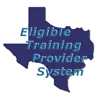ISO 9001:2015 CERTIFIED
- Home
-
Training
-
Class Room NDT Training
- Introduction to NDT
- Magnetic Particle Testing – Level I & II
- Liquid Penetrant Testing – Level I & II
- Visual and Optical Testing – Level I & II
- Magnetic Flux Leakage – Level I & II
- UT
- Ultrasonic Testing – Level I
- Ultrasonic Testing – Level II
- UT Phased Array – Level II
- UT A Scan Thickness Measurement – Level II
- UT Digital Thickness Measurement – Level II
- RT
- Radiographic Testing – Level I
- Radiographic Testing – Level II
- RT Film Interpretation – Level II
- Digital Radiographic Testing – Level II
- ET
- Eddy Current Testing – Level I
- Eddy Current Testing – Level II
- LT
- Bubble Leak Testing - Vacuum Box Technique
- Bubble Leak Testing - Immersion Leak Technique
-
Online NDT Training
- Introduction to NDT
- Magnetic Particle Testing – Level I & II
- Magnetic Particle Testing – NAS 410 Level I & II
- Magnetic Particle Testing – Spanish 410 Level I & II
- Liquid Penetrant Testing – Level I & II
- Liquid Penetrant Testing – NAS 410 Level I & II
- Liquid Penetrant Testing – Spanish Level I & II
- Visual and Optical Testing – Level I & II
- Magnetic Flux Leakage – Level I & II
- Ultrasonic Testing – Level I
- Ultrasonic Testing – Level II
- UT A Scan Thickness Measurement – Level II
- UT Digital Thickness Measurement – Level II
- Radiographic Testing – Level I
- Radiographic Testing – Level II
- RT Film Interpretation – Level II
- Digital Radiographic Testing – Level II
- Eddy Current Testing – Level I
- Eddy Current Testing – Level II
-
- Consulting
- Auditing
- Inspection
-
About Us
- Buy Now
- Contact Us
- Register
- Login
- Career




















